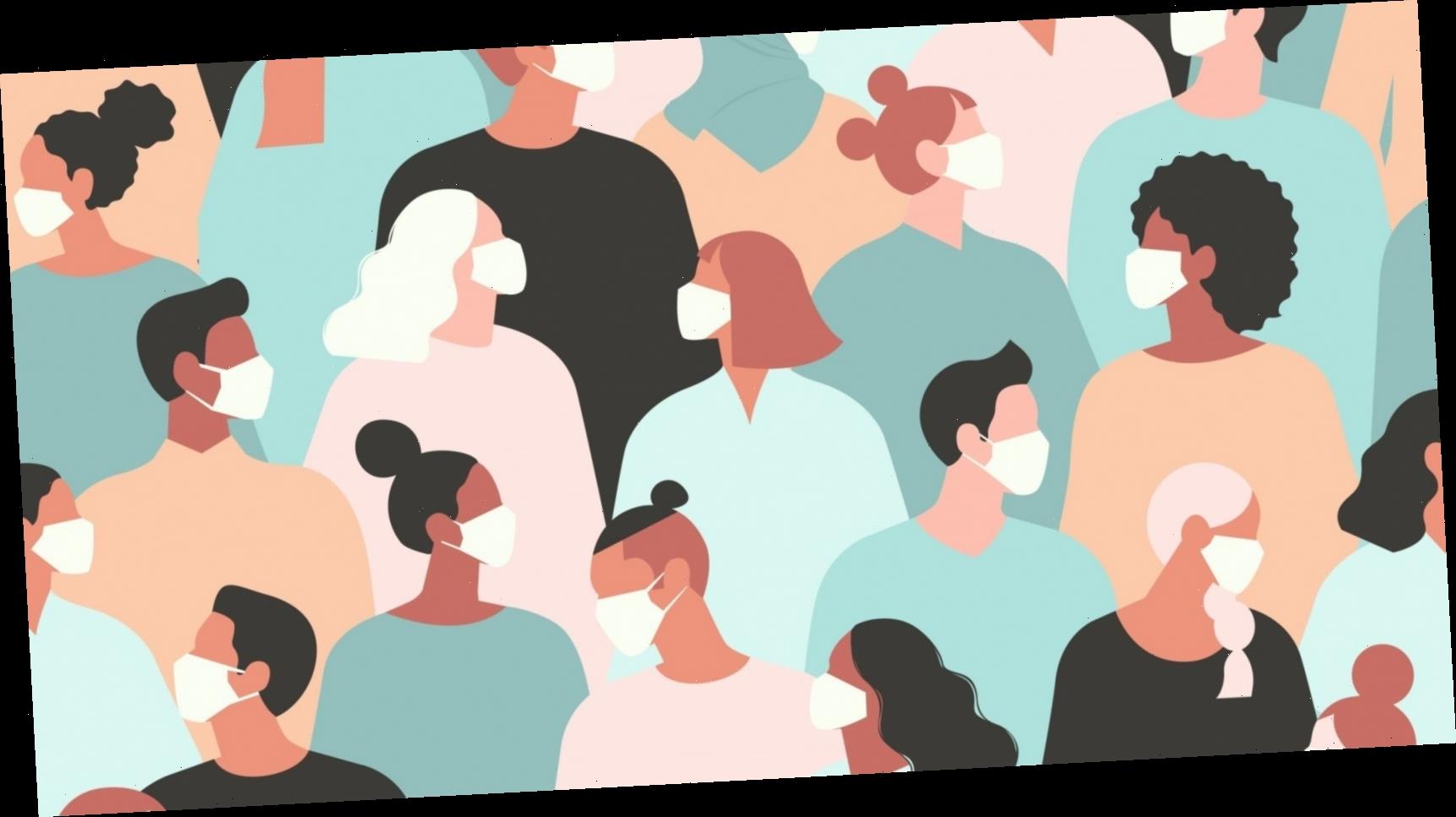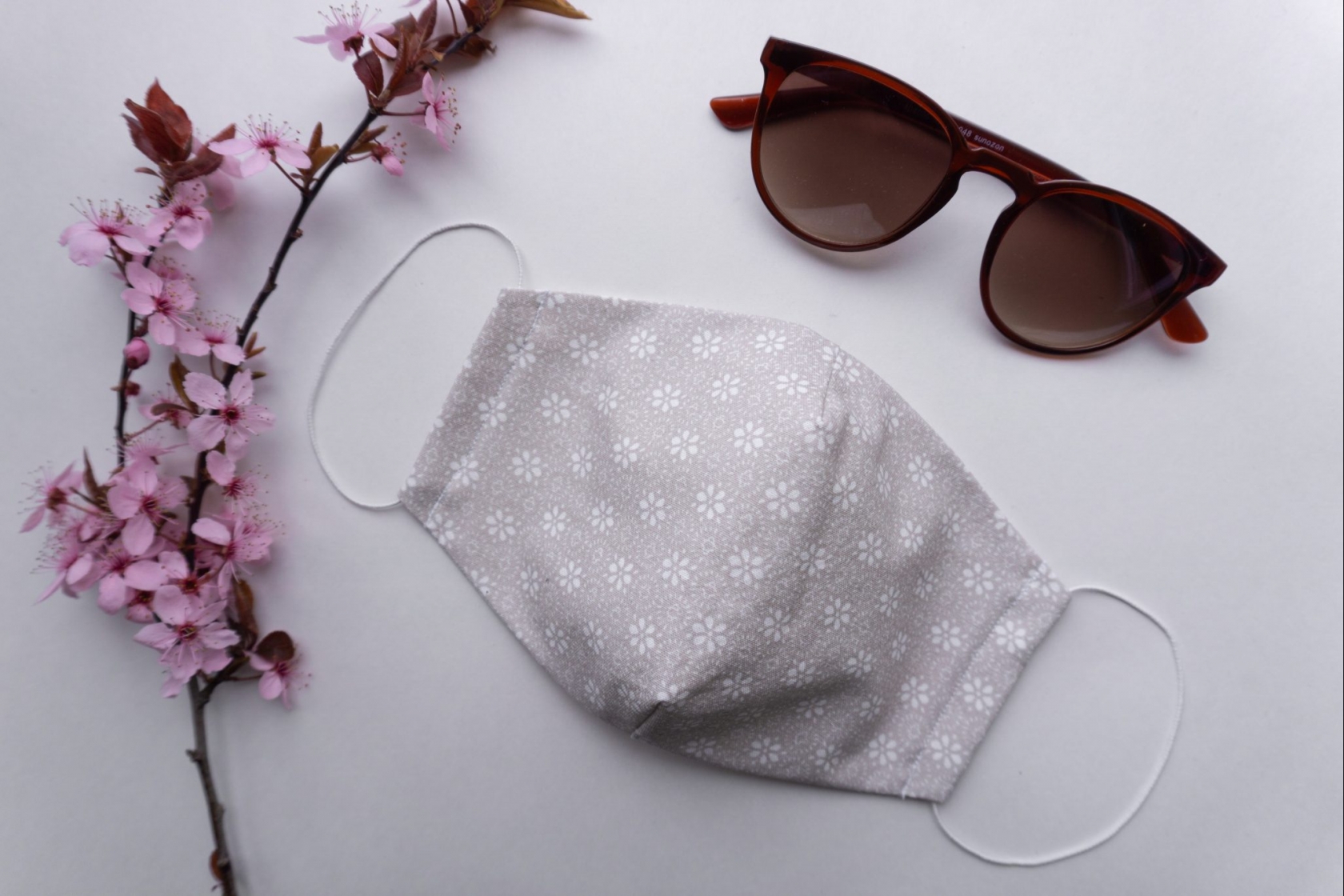Ever since face masks first became compulsory in shops and supermarkets across England on 24 July, they’ve been a contentious topic. But why? Stylist investigates.
Updated 6 September: It may have been well over a month since face coverings became compulsory in all shops and supermarkets across England, but some people are still very much against the idea.
On Friday (4 September) a video of TalkRADIO host Mark Dolan went viral after he cut up his face mask live on air, claiming that getting rid of the masks would help the country get “back to normal” and could even “save lives”.
And he’s not alone in his opposition of masks – the decision to make face coverings mandatory in secondary schools in local lockdown areas in England was met with opposition from parents and politicians alike, despite the change reflecting updated WHO guidance.
As reported 16 July: The information on face masks may have been rocky at the beginning of the pandemic, but now that scientists have had time to learn more about the virus and how it spreads, it’s become clear that face coverings can play a crucial role in helping to limit the spread of the virus.
The World Health Organisation (WHO) say masks can provide “a barrier for potentially infectious droplets” and have told governments to encourage mask wearing in areas where physical distancing is difficult “such as on public transport, in shops or in other confined or crowded environments.”
With these developments in mind, many people have welcomed the government’s decision to make masks mandatory back in July. But others were very much against the idea of wearing a face mask, with some people even referring to them as “muzzles” on Twitter in perhaps misplaced outrage at the instructions that will protect the people around them.
For those people who feel comfortable wearing a face mask, the angry messages being shared online in are likely pretty confusing. So why are some people still so against wearing a mask when it’s clear that their usage can play a crucial role in preventing the spread of this virus? Stylist investigates.
If there’s one symbol that has come to define the coronavirus pandemic, it’s the humble face mask. From the classic single-use medical mask to the washable patterned styles, the pandemic has transformed the face mask from medical equipment to an everyday essential.
Most people are aware by now that wearing a face mask alone isn’t enough to protect you from contracting Covid-19. However, wearing a face mask reduces the risk of transmission if you’re infectious but have not yet developed symptoms. With this knowledge, you’d think that wearing a face mask would be a no brainer, but there’s still a lot of people who are opposed to the idea.
“The UK is way behind many countries in terms of wearing masks and issuing clear policies and guidelines about mask wearing for the public,” Venki Ramakrishnan, president of the Royal Society, warned on 7 July.
“The public have taken to handwashing and distancing but remain sceptical about face coverings,” Ramakrishnan added. “You only need to go on public transport, where they are supposed to be mandatory, to see how many people are ignoring this new rule based on the growing body of evidence that wearing a mask will help protect others — and might even protect you.”
So why are some people so against wearing a face mask? At face value, it might seem strange that people are so reluctant to cover their face, especially when there’s plenty of evidence to show how effective such a simple act can be.
It’s worth noting that there are a number of reasons why some people are exempt from wearing a face mask – for example, if they have a physical or mental illness or disability which means they cannot put on, wear or remove a face mask, or if you are travelling with someone who relies on lip reading to communicate.
But for those people who are perfectly capable of wearing a mask, but still decide not to wear one, it turns out their controversial decisions might run a lot deeper than the frustrating rhetoric around whether or not a mask is “comfortable” or “convenient” – in fact, it could reveal key details about the inner workings of their psychology.
“The choices we make regarding what to wear – or not wear – signal to the outside world important information about who we are, according to Social Identity Theory,” explains Dr Meg Arroll, chartered psychologist with Healthspan.
Arroll continues: “This classic psychological theory states that aspects of our identity arise from the groups which people are, or want to be, a part of. Therefore, if we observe members of a desired group not wearing face masks, we may replicate this in order to be seen as part of this group – for instance a powerful political leader.
“When it comes to everyday clothing, this notion is not surprising, but in the case of a mask which may make the difference between life and death, those on the other side of the fence might find the refusal to wear this protective layer rather perplexing or offensive.
“This however shows the strength of our need to be part of a group as social animals – not wearing a mask shows a sign of solidarity, a stand against authority that is perceived as taking away essential freedoms, whereas wearing one can be viewed as an act of altruism to protect others. These are deep-seated psychological drivers and why the decision ‘to wear or not to wear’ face coverings has become such an emotive issue.”
This isn’t the only reason why people might feel reluctant to wear a face mask, however. Sure, in areas where masks seem to have become semi-normalised – such as in London – the reluctance to wear one might come from a “stand against authority”. But in areas where very few people are seen wearing a mask, the reason why someone might not wear a mask despite knowing the benefits might drill down to “pack mentality”.
“We may feel awkward about wearing a mask when others around us are not as we have an evolutionary drive to be part of the pack,” Arroll explains.
“Such an obvious divergence from the norm will mark us out as being different, and so potentially unacceptable to the social group, eliciting feelings of anxiety which we naturally want to overcome by conforming.”
It’s clear that the debate around face masks runs much deeper than the argument that they’re “uncomfortable” or “inconvenient” – but that doesn’t change the fact that wearing a face covering is incredibly important. Not doing so – if you are not exempt from doing so – puts those around you at risk. Now more than ever, we need to make both our health, and the health of those around us, a top priority.
This article was originally published on 7 July and has since been updated to reflect new government advice.
Images: Getty/Unsplash
Source: Read Full Article

